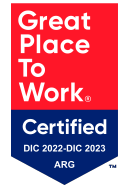The Death of Manual Reports in Healthcare
In the dynamic landscape of healthcare, the metamorphosis of medical reporting stands as a testament to the relentless progression of technology. The integration of emerging technologies is steering a paradigm shift in the creation, storage, and utilization of medical reports, heralding a new era in the field. This article delves into the trends and advancements poised to define the future of medical reports, exploring how these changes are set to shape the landscape of healthcare delivery.
Navigating the Medical Reporting Landscape
As we navigate through the transformative journey of medical reporting, key trends emerge as heralds of innovation. From the transformative power of Artificial Intelligence (AI) and Machine Learning to the widespread adoption of Electronic Health Records (EHR) Systems, each trend contributes to a narrative of digitization, automation, and advanced data analysis.
The rise of Telemedicine and Digital Health Technologies further emphasizes the evolving doctor-patient relationship, enabling real-time generation of medical reports through cutting-edge digital tools. Interoperability and Data Standards emerge as critical components, fostering seamless data exchange between diverse healthcare systems. The integration of Augmented Reality (AR) and Virtual Reality (VR) presents a visually immersive dimension to medical reporting, transforming the way professionals interact with complex information.
Blockchain technology emerges as a sentinel, fortifying the security and privacy of medical data, crucial for the sensitive nature of medical reports. The trajectory towards Personalization and Precision Medicine heralds a future where medical reports pivot towards individualized data, offering more accurate and tailored treatments.
As we conclude this exploration, the strategies outlined for a seamless digital transition underscore the importance of meticulous planning and collaborative efforts. From evaluating needs and selecting the right tools to training staff and ensuring data security, each strategy is a cog in the wheel of progress.
The transition from manual to digital processes in the medical field, though gradual, holds immense promise. With these strategies as a guide, the future of medical reports beckons with the potential for substantial improvements in healthcare efficiency and quality.
Emerging Trends in Medical Reporting:
Here are some trends and advancements that could shape the future of medical reports:
1. Artificial Intelligence (AI) and Machine Learning:
- AI is at the forefront of revolutionizing the interpretation of medical data.
- Machine learning algorithms are adept at swiftly and accurately analyzing extensive datasets, surpassing the capabilities of manual reports.
- This advancement aids in the identification of patterns, disease diagnosis, and the precise prediction of outcomes.
2. Electronic Health Records (EHR) Systems:
- The adoption of electronic health records is experiencing a notable upswing.
- These systems facilitate swift and efficient access to patient data, streamlining the digital generation and storage of medical reports.
3. Telemedicine and Digital Health Technologies:
- Telemedicine is redefining doctor-patient interactions by enabling remote consultations.
- This has the potential to lead to the real-time generation of medical reports through digital tools.
- Connected medical devices and health monitoring applications automatically generate data for updated and accurate medical reports.
4. Interoperability and Data Standards:
- A growing need exists to standardize medical data, enhancing the exchange of information between diverse healthcare systems and providers.
- Interoperability standards improve the accuracy and accessibility of medical reports.
5. Augmented Reality (AR) and Virtual Reality (VR):
- These cutting-edge technologies have the potential to transform how medical professionals interact with reports.
- Visualization of data in three-dimensional environments facilitates a deeper understanding of complex information.
6. Blockchain in Healthcare:
- Blockchain technology emerges as a safeguard for the security and privacy of medical data.
- Its implementation is crucial for the secure generation and storage of sensitive medical reports.
7. Personalization and Precision Medicine:
- Future medical reports may pivot towards individualized data, leveraging genomic information and personalized data for more accurate and tailored treatments.
Strategies for an Effective Digital Transition:
1. Evaluate Needs and Objectives:
- Identify processes that can benefit most from digitization, such as medical record management, appointment scheduling, billing, etc.
- Establish clear goals for the transition and define the expected benefits.
2. Select the Right Tools:
- Research and carefully choose technological solutions that best fit the needs of your medical practice or institution.
- This may include electronic health record management software (EHR), telemedicine applications, and electronic billing systems, among others.
3. Train Staff:
- Provide comprehensive training to healthcare professionals and administrative staff on the use of new digital tools.
- Ensure they understand how to effectively use the new system to maximize its potential.
4. Ensure Data Security:
Implement robust information security measures, including data encryption, strong authentication systems, and secure access policies.
5. Integration and Compatibility:
Ensure new digital tools are compatible and integrable with existing systems to avoid communication issues between different platforms and facilitate data exchange.
6. Promote Adoption:
Effectively communicate the benefits of digitization to your team, highlighting how these tools will improve efficiency, treatment accuracy, and the patient experience.
7. Test and Adjust:
Before fully implementing new digital solutions, conduct pilot tests to identify potential issues and make adjustments as necessary.
8. Monitoring and Continuous Improvement:
Regularly monitor the performance of implemented digital solutions and look for opportunities for improvement. Keep systems and processes updated as technology evolves.
Navigating the Digital Frontier in Healthcare Reporting
As we stand at the crossroads of healthcare evolution, the trajectory of medical reporting is unmistakably pointed towards a digital future. The trends and advancements outlined in this exploration illuminate a path where Artificial Intelligence, Electronic Health Records (EHR) Systems, Telemedicine, and a host of cutting-edge technologies converge to reshape the landscape of medical reports.
The promise of precision offered by AI and Machine Learning, the efficiency of EHR Systems, and the transformative potential of Telemedicine reflect a paradigm shift from manual processes to a seamless digital experience. The integration of Augmented Reality, Virtual Reality, Blockchain, and the focus on Personalization and Precision Medicine further underscore the transformative potential of these technologies.
In synthesizing the trends and strategies for a digital transition, it becomes evident that the future of medical reports is not merely a conceptual shift but a tangible journey toward enhanced healthcare delivery. The outlined strategies provide a roadmap, ensuring a methodical and effective transition from traditional methods to the era of digitization.
As healthcare professionals embrace this transition, the amalgamation of advanced technologies promises improvements in accuracy, efficiency, and patient outcomes. The call to evaluate needs, select appropriate tools, train staff, ensure data security, foster integration, promote adoption, and engage in continuous improvement sets the stage for a healthcare landscape where manual reports become a relic of the past.
In conclusion, the digital metamorphosis of medical reports signifies more than a technological evolution—it embodies a commitment to elevated standards of care, streamlined processes, and a healthcare future where innovation enhances every facet of patient well-being. The journey is underway, and as we stride into this digital frontier, the prospects for a more efficient, precise, and patient-centric healthcare ecosystem are both exciting and transformative.






